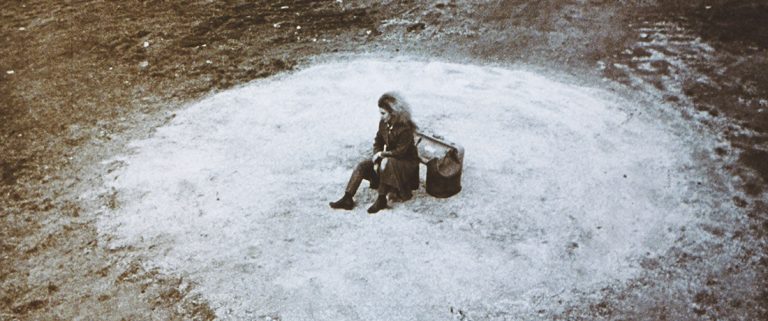
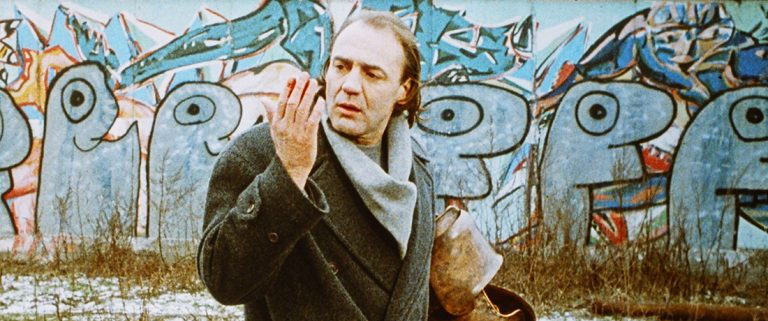
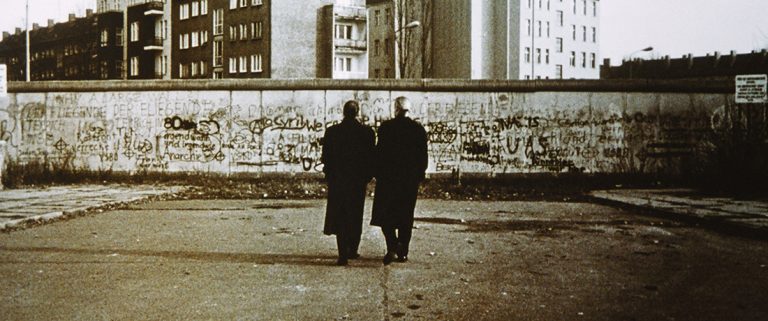
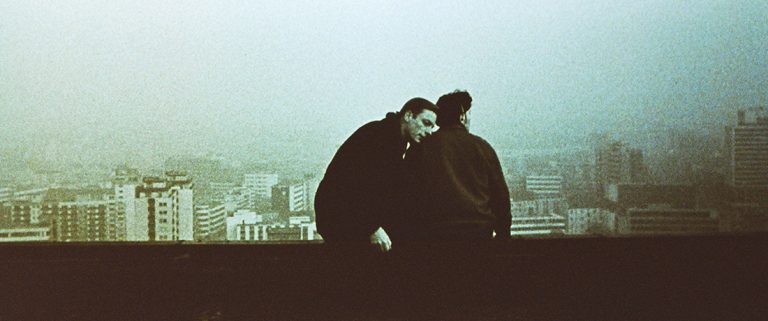
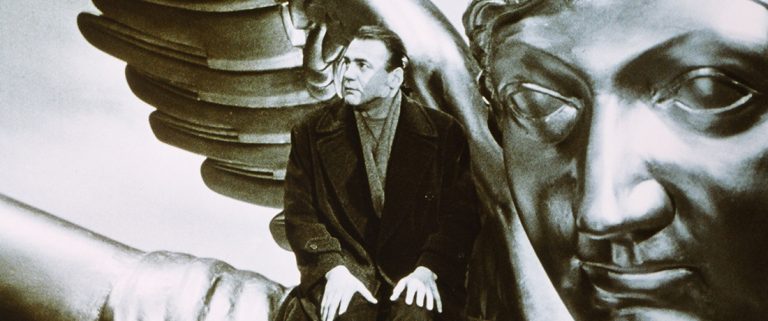
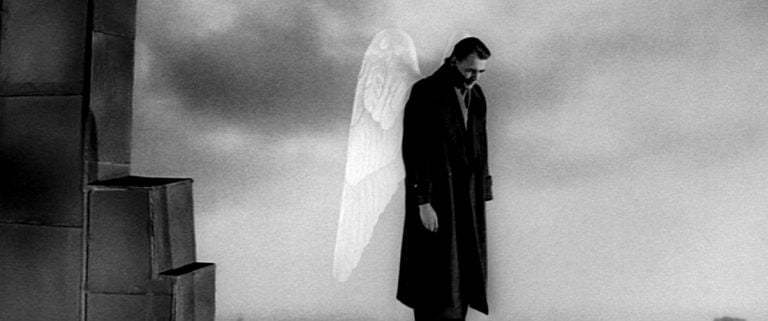
The sky over Wenders’ war-scarred Berlin is full of gentle, trench-coated angels who listen to the tortured thoughts of mortals and try to comfort them. One, Damiel (Bruno Ganz), wishes to become mortal after falling in love with a beautiful trapeze artist, Marion. Peter Falk, as himself, assists in the transformation by explaining the simple joys of a human experience, such as the sublime combination of coffee and cigarettes.
Told from the angel’s point of view, the film is shot in black and white, blossoming into colour only when the angels perceive the realities of humankind. Ultimately, Damiel determines that he must experience humanity in full, and breaks through into the real world to pursue a life with Marion.
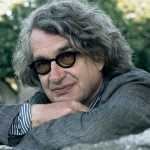
Wim Wenders: Wim Wenders (born 1945) came to international prominence as one of the pioneers of the New German Cinema in the 1970’s and is considered to be one of the most important figures in contemporary German film. In addition to his many prize-winning feature films, his work as a scriptwriter, director, producer, photographer and author also encompasses an abundance of innovative documentary films, international photo exhibitions and numerous monographs, film books and prose collections. He lives and works in Berlin, together with his wife Donata Wenders.
His career as a filmmaker began in 1967 when Wenders enrolled at the newly founded University of Television and Film Munich (HFF Munich). Parallel to his studies at the HFF, he also worked as a film critic from 1967 to 1970. At this point in time he had already directed various short films. Upon graduating from the academy in 1971, he founded, together with fifteen other directors and authors, the Filmverlag der Autoren, a film distribution company for German auteur films, which organized the production, rights administration and distribution of their own independent films.
